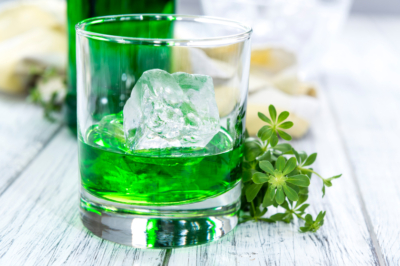Last updated on October 23rd, 2023 at 08:57 pm
Many freshly harvested herbs can be preserved particularly gently by freezing and kept for several months. In the case of woodruff, however, freezing serves another purpose in addition to storability.

Contents
The limited harvest time of the woodruff
Many herbs and spice plants can be harvested fresh from the plant on the windowsill or in the garden almost all year round. Woodruff, on the other hand, should ideally be harvested in the spring before the flowering period from about mid-April to mid-May. It develops its strongest aroma in March and April, so this is the best time to collect the slender stems with their lance-shaped leaves. For longer-term storage, you can either dry or freeze woodruff, as it not only retains its aroma in both storage options, but actually enhances it. For an ideal taste experience, a combination of both variants is even recommended.
Harvest the woodruff and let it wilt.
Harvesting involves cutting the tender stems just above the ground with a clean knife or herb sickle. When doing this, you should only ever remove isolated stems from one location so that the woodruff can recover by the following year if well cared for. Bundle the cut stems into small bunches and hang them upside down in a dry, dark place for about a night or a day. It is only during this wilting process that the strong aroma of woodruff is formed due to the breakdown of the coumarin it contains. Freezing whole or packaged in portions has about the same effect on flavor intensity, but the combination of the two methods can produce the best results.
Using frozen woodruff
Using frozen woodruff in cooking is relatively straightforward, as it usually thaws very quickly at room temperature or when placed in liquids. For example, it can be used in the following recipes:
- Berliner Weisse
- May punch
- Woodruff lemonade
- Wackelpeter
Tips & Tricks
Always keep in mind that natural woodruff is not only a flavoring plant, but also a medicinal plant due to the coumarin it contains. Therefore, do not let the stalks soak in May punch or similar recipes for longer than a maximum of half an hour, as the otherwise possible overdose of coumarin can lead to malaise or even liver damage if consumed regularly.


